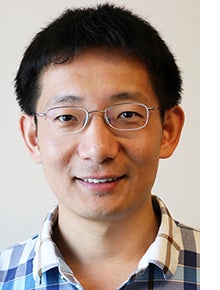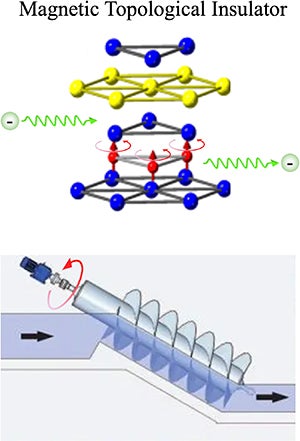
Ran Cheng, an assistant professor of electrical and computer engineering, has recently received a $250,000 grant from the W.M. Keck Foundation to explore the possibility of using an emerging class of materials known as magnetic topological insulators to build electronics with extremely low power consumption.
adiabatic currents, driving magnetic
dynamics without producing Joule
heating. The mechanism is analogous
to an idea of an Archimedes screw in
which water currents can drive a turbine
without leakage.
The foundation targets high-risk and high-reward ideas that are typically rejected by federal funding agencies.
Magnetic topological insulators can theoretically be utilized for achieving “dissipationless spintronics,” in which the magnetic moments can be moved by pure voltages without currents, hence not generating heat. The hope is that spintronics could allow for faster and more powerful computers and other applications.
Cheng will work with scholars from three other universities in a $1.3 million project led by Enrique Del Barco, a professor at the University of Central Florida. The team also includes Andrew Kent of New York University and Simranjeet Singh of Carnegie Mellon University.
Since joining UCR’s Bourns College of Engineering in 2018, Cheng has been leading a research group in the field of condensed matter physics.
Last year Cheng and his collaborators published a paper in the journal Nature Materials that detailed a decade of research advancements in the emerging field of antiferromagnetic spintronics. These advances hold the promise of moving beyond today’s world of electrons moving through semiconductors and pave the way for faster and more efficient electronic devices.
